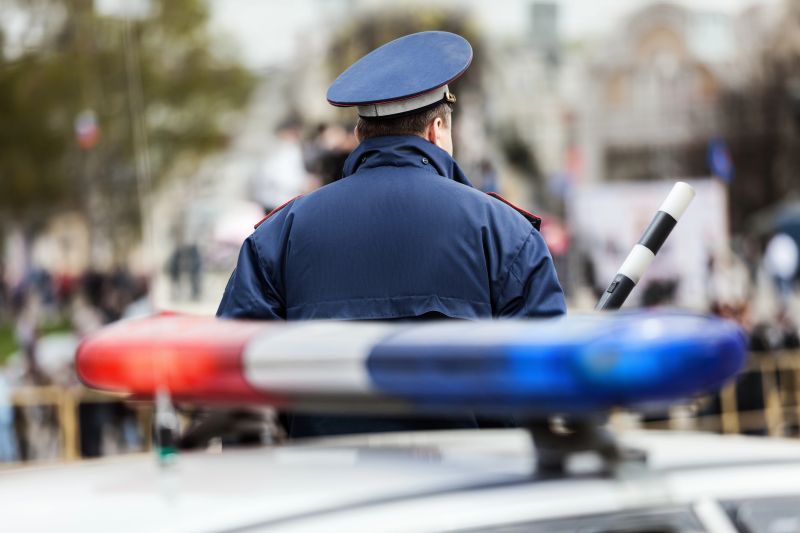How Long Does A Protective Order Last In Virginia?
How Long Does A Protective Order Last In Virginia?
Key Notes:
Protective orders in Virginia vary in length based on type. An emergency order may last only a few days. A preliminary order generally lasts about two weeks. A permanent order can last up to two years and may be extended further.
Being served with a protective order in Virginia is overwhelming. It can feel sudden, confusing, and like your whole world just shifted overnight. One of the first questions most people ask is: “How long will this order last?”
The answer isn’t the same for everyone. Protective orders come in different types, and each one has its own timeline, from just a few days to several years. Understanding these differences is the first step in figuring out how to respond and how to protect yourself moving forward.
Emergency Protective Orders
An emergency protective order (EPO) is the shortest type you can face. These are usually issued right after an alleged incident, often at the request of law enforcement or a magistrate. They go into effect immediately, sometimes without you being present or having a chance to respond.
How long does it last?
- Usually up to 72 hours.
- If the 72 hours fall on a weekend or holiday, it extends until the next court session.
- Once it expires, the petitioner can request a preliminary protective order to extend it.
Even though it’s temporary, an EPO can force you out of your home, restrict contact, or impact your access to children. It also creates a record that may follow you into later hearings. That’s why it’s important to take it seriously, comply fully, and use the time to start planning your legal response.
Preliminary Protective Orders
A preliminary protective order (PPO) is the next step after an emergency order. Unlike an emergency order, it lasts longer and is designed to hold until the court decides whether a permanent order is necessary.
This typically lasts up to 15 days. It remains in effect until the full court hearing takes place. During that hearing, a judge will determine whether to issue a permanent protective order. It can include:
- No contact with the petitioner (in person, by phone, or online).
- Temporary limits on child custody or visitation.
- Orders to stay away from a home, workplace, or school.
- Restrictions on firearm possession.
This is your first chance to prepare a defense. The PPO is temporary, but what happens during this time sets the tone for the permanent hearing. Complying with the order and working with an attorney to gather your side of the story is essential. A violation, even at this stage, can damage your credibility in front of the judge.
Permanent Protective Orders
Permanent protective orders (PPOs) carry the most serious consequences. Despite the name, they aren’t always “forever,” but they can last long enough to affect nearly every part of your life. These are issued only after a full court hearing, where both sides can present evidence and testimony.
Duration & Extensions
- A permanent order can last up to 2 years under Virginia law.
- Before it expires, the petitioner may ask the court to extend it, sometimes multiple times.
- That means an order could stretch on for years if renewals are granted.
Common Restrictions
| Condition | What It Means |
| No Contact | No calls, texts, emails, or third-party messages |
| Exclusion from Home | You may be ordered to leave a shared residence |
| Custody & Visitation Limits | Restricted or supervised time with children |
| Firearm Surrender | Required to turn over any firearms while the order is active |
A permanent order isn’t just inconvenient; it can shape your parental rights, your job prospects, and your reputation. Once it’s in place, challenging it becomes much harder. That’s why building your defense early and presenting your side clearly at the hearing is so important.
When A Protective Order Ends
Protective orders don’t last forever by default. Once the time set by the court runs out, the restrictions are lifted, unless the petitioner asks for an extension. That means you should always pay attention to the official expiration date rather than assuming it’s “over.”
If the order is extended, the court will usually schedule another hearing where both sides can argue for or against renewal. It’s a chance to show that circumstances have changed or that the order is no longer necessary.
One important thing to remember: until the order officially expires, it’s still fully enforceable. Violating it, even the day before it ends, can lead to criminal charges. Staying compliant until the very last day protects your record and strengthens your credibility if the case is reviewed again.
How Protective Orders Impact Family Law Issues
Protective orders don’t exist in a vacuum. If you’re going through divorce or custody proceedings, the order filed against you can overlap with family law. It may be in ways that directly affect your parenting rights, living arrangements, and long-term future. Here’s how courts often treat them in Virginia.
Custody & Visitation
Judges in Virginia are required to consider the best interests of the child above everything else. If there’s an active protective order against you, it may restrict or limit visitation, sometimes requiring supervised visits. Even if the allegations aren’t proven yet, the presence of the order can make the court cautious when assigning custody.
Living Arrangements
A protective order can require you to leave a shared home, even if your name is on the lease or mortgage. This can create an immediate housing challenge, especially if children are involved. It may also affect divorce proceedings later, as temporary arrangements sometimes carry weight in the final decision.
Divorce & Property Division
While a protective order doesn’t directly decide how property is divided, it can influence the process. For example, being ordered out of the home could shift how temporary possession is handled during divorce. Judges may also weigh the existence of the order when evaluating fairness in financial or support matters.
Protective orders may start as short-term safety measures, but their ripple effects can shape major family law outcomes. Understanding this overlap and responding strategically is one of the most important steps in protecting your rights during divorce or custody disputes.
Getting The Right Legal Help When Facing A Protective Order
Protective orders can feel overwhelming, especially when they limit where you live, how you parent, or who you can see. Responding effectively requires more than just showing up in court; you need a plan and someone who knows how Virginia judges handle these cases.
Understanding The Terms Clearly
The first step is knowing exactly what the order says. Many people unintentionally violate terms because they misunderstand what counts as “contact” or what areas they’re restricted from entering. We help you break down the order so you can avoid mistakes that could turn into criminal charges.
Building A Defense
Not every protective order reflects the full truth. Some are based on misunderstandings, exaggerated claims, or conflicts that got out of hand. At The Irving Law Firm, we work with you to gather evidence, present your side, and challenge the parts of the order that aren’t fair or accurate.
Planning For The Long Term
Even if the order is temporary, its effects can last far beyond its expiration. Custody, housing, and employment can all be shaped by the outcome of these hearings. Preparing a strategy early gives you the best chance at protecting your future, not just the present.
Protective orders are serious, but they don’t have to define the rest of your life. With the right legal support, you can respond effectively, avoid costly missteps, and move forward with your rights intact.
Why Every Protective Order Deserves Your Attention
Protective orders in Virginia don’t all last the same amount of time. Some expire within days, while others can stretch for years if extended. No matter the length, each order carries serious consequences for your freedom, your family, and your reputation.
If you’ve been served with one, the most important step is to take it seriously from the start. At The Irving Law Firm, we help people in Manassas and across Northern Virginia respond to protective orders with strategy and clarity. Whether it’s a short emergency order or a long-term restriction, we make sure you understand what’s at stake and how to protect yourself.
You can’t control the fact that the order was issued, but you can control how you respond. With the right defense, a protective order becomes a challenge you face, not the end of your story.






